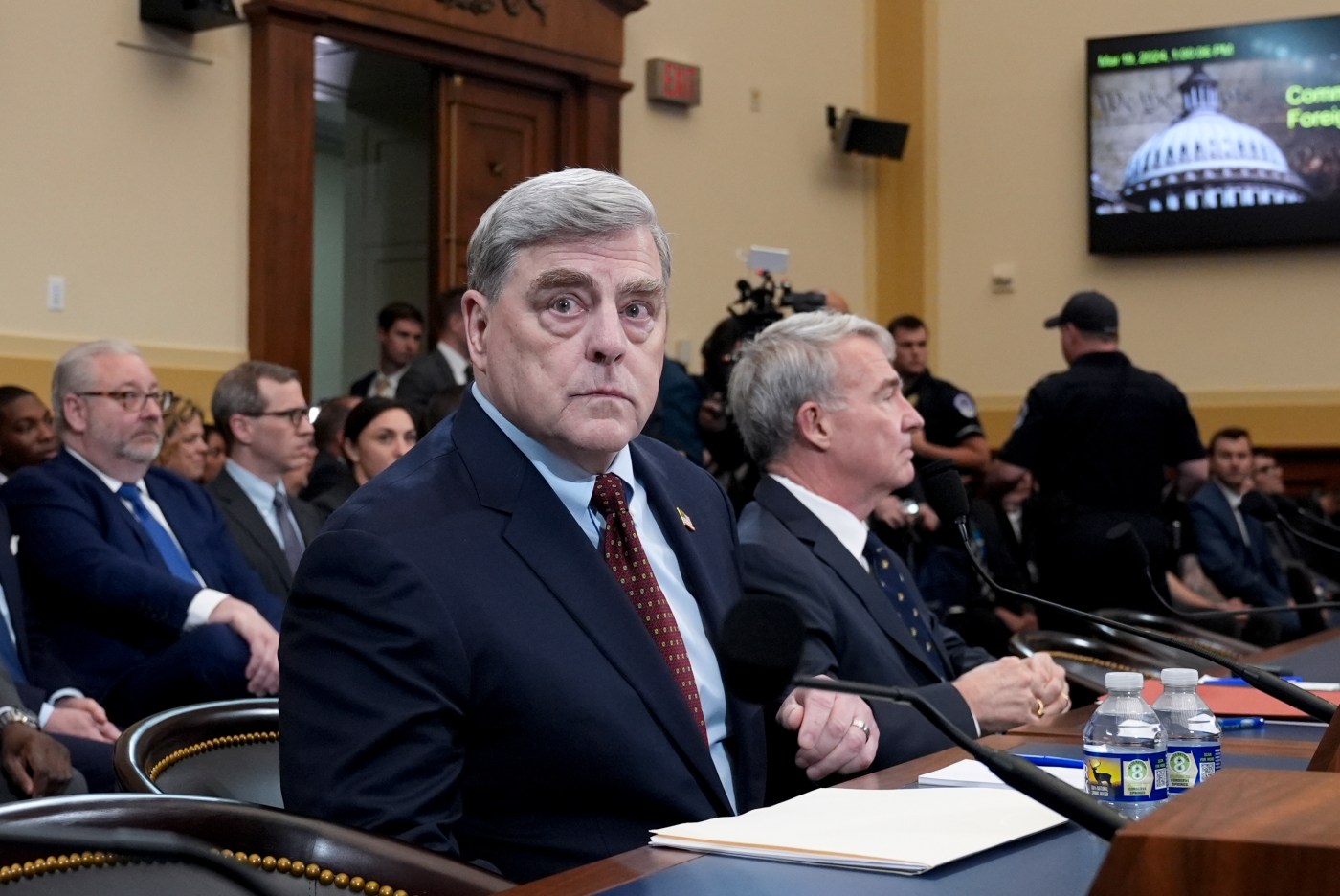
Lucas: General disaster: Testimony on Biden’s botched Afghanistan withdrawal too little, too late
A U.S. general out of uniform is like an actor without a job.
That is one takeaway from the appearance of the top two U.S. generals, now retired, who oversaw Joe Biden’s disastrous pullout from Afghanistan before the House Foreign Affairs Committee last week,
Another is how ordinary they looked, being out of uniform and testifying before the committee dressed in their new civilian dress suits, white shirts and sporty neckties.
The two were the perpetually grim Gen. Mark A. Milley, the former chairman of the Joint Chiefs of Staff, and the less grim-looking U.S. Marine Corps Gen. Frank McKenzie, former head of the U.S. Central Command.
Both had advised Biden against his hasty 2021 withdrawal from Afghanistan without leaving a substantial military presence behind. It was their first appearance before Congress since they retired.
With their military uniforms left at home along with the pinned general stars, gold braid and salads of military decorations, the pair looked like ordinary joes you regularly run into on the streets of Boston.
Milley, in his new attire, could have passed for a beat-up Boston cop headed for a double at J. J. Foley’s in the South End, while McKenzie could have passed as one of Foley’s bartenders, if not a Foley himself.
This is not to demean either man. Both entered the military at an early age and served their country with distinction, Milley for 39 years and McKenzie for 42.
However, in life you are not remembered much for how you began your career, but how you ended it.
And in this case neither man went out with a bang, but with a whimper.
The whimper in both cases was their testimony that they heartily advised President Joe Biden—as the intelligence community did– against his 2021 hasty withdrawal of all U.S. troops from Afghanistan.
If Milley, Biden’s principle military advisor, felt so strongly about it back then he could have made his feelings publicly known—even if the information was leaked– when it would have meant something.
And forget the nonsense that a leak would have been traitorous or unethical. Washington thrives on leaks.
And Milley was the general who, without President Donald Trump’s consent or knowledge, secretly called his counterpart in Communist China during the Jan, 6 riots to let the Chinese know that the U.S. would not invade. And then he leaked what he had done to his friends at the Washington Post.
Milley was a woke political general who played up to the anti-Trump progressives by standing up to Trump while rolling over for Biden.
And it leaves open the question what advice, if any, Milley would have given President Trump over an Afghanistan pullout were Trump president at the time, and not Joe Biden.
Milley liked to talk about how military men like him do not take an oath of office to an individual like the president, but to the Constitution, meaning the people.
In the case of Afghanistan, it sounds more like his oath was to an individual, Joe Biden, and not to the people.
Coming as it has after the Afghanistan disaster, their testimony was much too little and way too late to have any meaning anyway.
That botched Afghanistan effort cost the lives of 13 Americans at the Abbey Gate entrance to the Kabul airport who were killed by a suicide Taliban terrorist bomber who could have been killed earlier but was not.
No one has been held responsible for that, or for anything else that went wrong.
But at least Gen. McKenzie, the commander on the ground at the time, took responsibility for the death of the 13 American soldiers, if not the policy that created the environment that led to their deaths. Milley not so much.
With parents of some of those young Americans killed in the hearing room, McKenzie said, I, and I alone, bear full responsibility for what happened at Abbey Gate.”
That, at least, was something. Milley should say the same. Joe Biden, too.
Peter Lucas is a veteran political reporter. Email him at: peter.lucas@bostonherald.com
Retired Gen. Kenneth McKenzie, former commander of the U.S. Central Command, appears before the House Foreign Affairs Committee about the U.S. withdrawal from Afghanistan on Capitol Hill last week. (AP Photo/Mark Schiefelbein)

